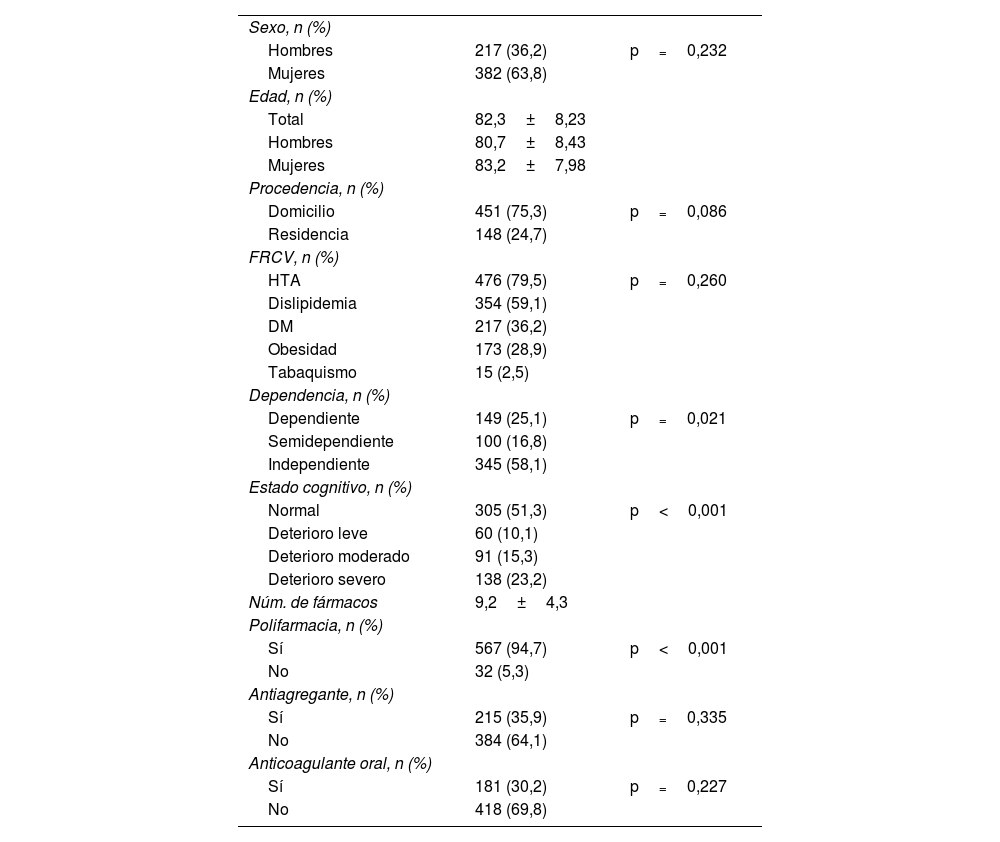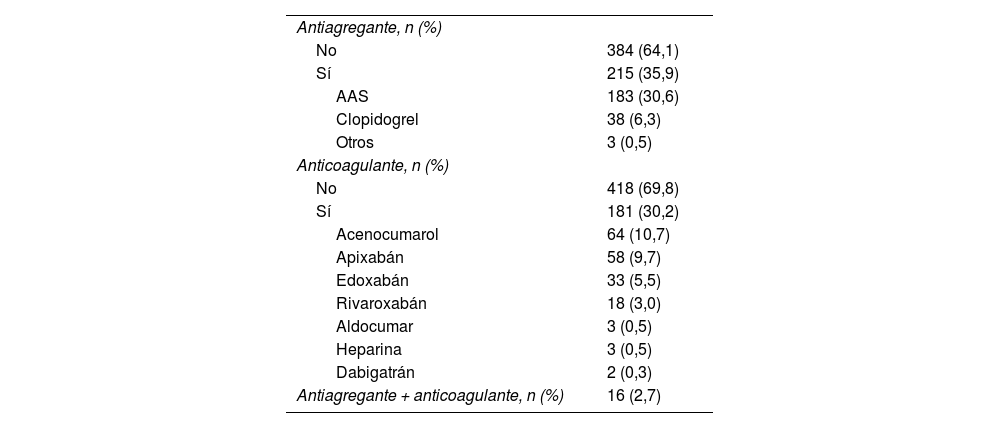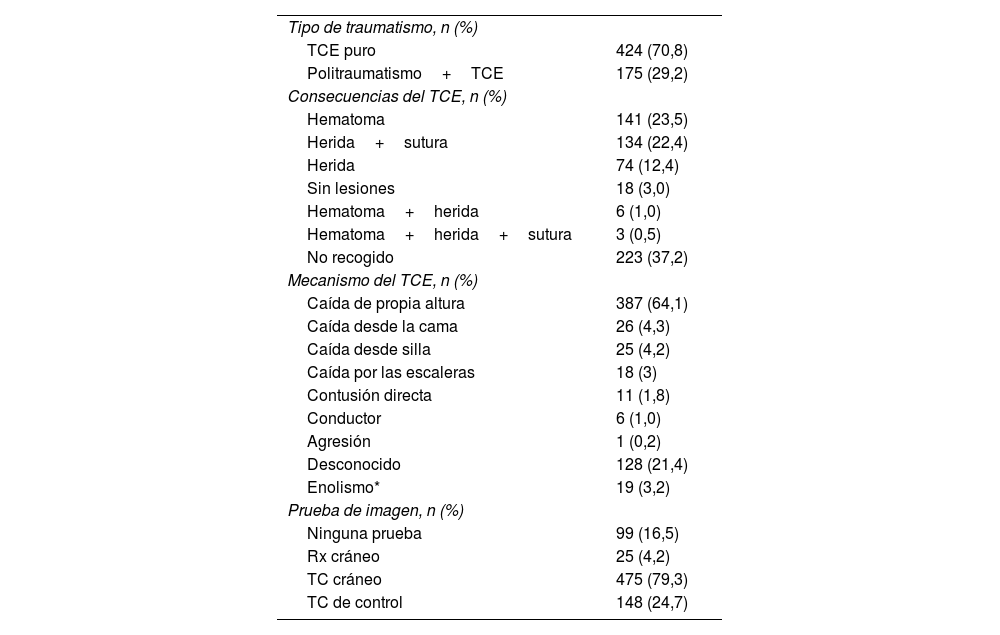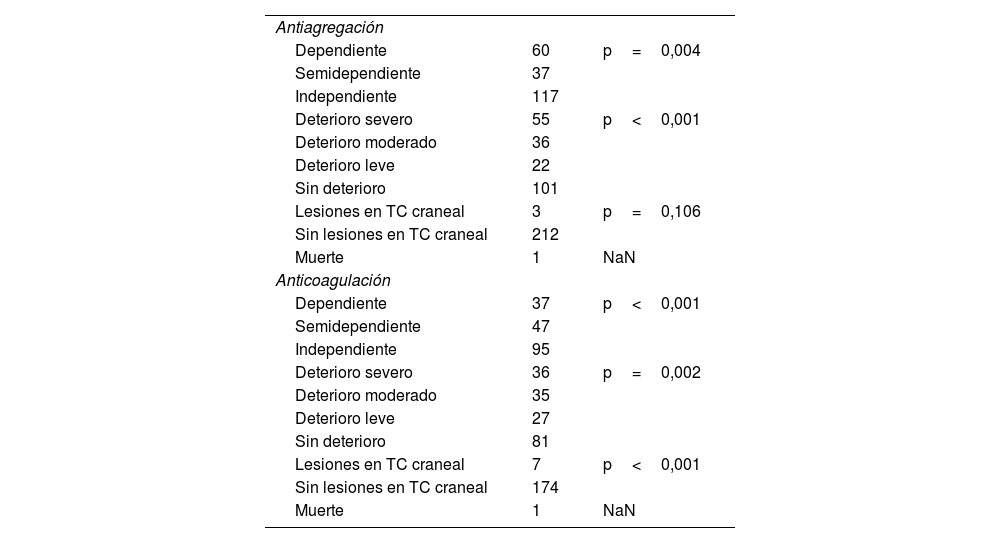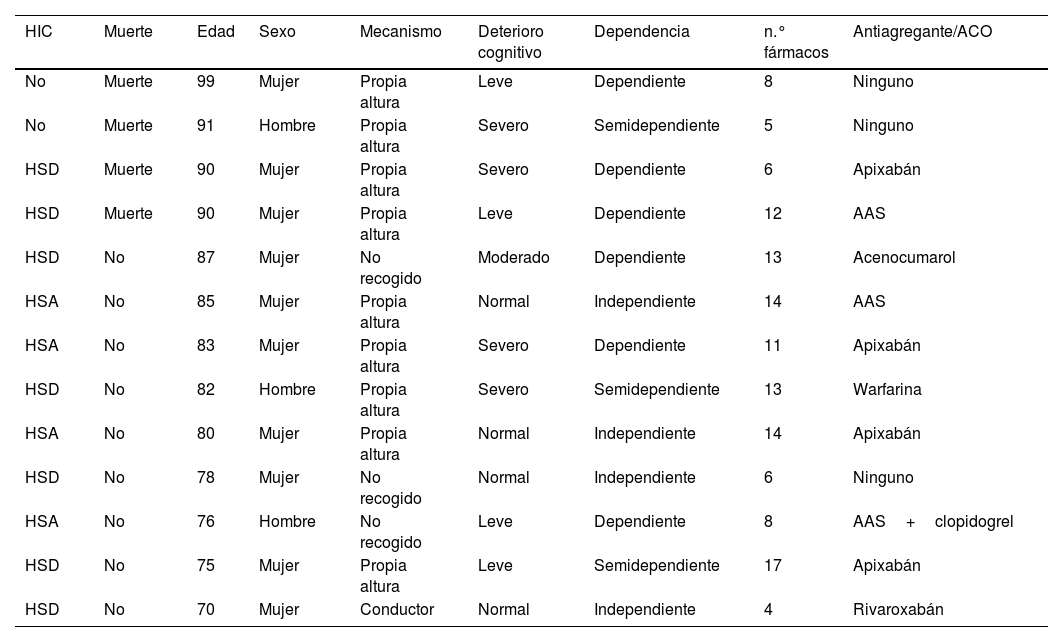El envejecimiento se asocia a un mayor riesgo de caídas y traumatismos. El objetivo del estudio fue valorar las características de los pacientes mayores de 65 años que consultaron en urgencias por traumatismo craneoencefálico (TCE) en 2022, su relación con el deterioro cognitivo, la dependencia funcional, el uso de antiagregantes/anticoagulantes orales y las complicaciones presentadas.
Materiales y métodosEstudio retrospectivo realizado del 1 de enero al 31 de diciembre de 2022. Se recogieron datos demográficos: edad, sexo, procedencia; factores de riesgo cardiovascular; deterioro cognitivo mediante cuestionario de Pfeiffer; discapacidad física según el índice de Barthel; número de fármacos; uso de antiagregante y anticoagulante oral (ACO); mecanismo de caída; realización de radiografía/TAC craneal y presencia de complicaciones: hemorragia intracraneal (HIC) y muerte.
ResultadosSe incluyeron 599 pacientes. La edad media fue 82,3±8,2 años. El 63,8% fueron mujeres y el 36,2% hombres. El 75,3% procedían de su domicilio y el 24,7% de residencia. No presentaban demencia el 61,4% y demencia moderada-grave el 38,6%. El 58,1% eran independientes funcionalmente y el 25,1% presentaban dependencia moderada-severa. Tenían FRCV el 85,7%: HTA 476 (79,5%), dislipidemia 354(59,1%), DM 217(36,2%), obesidad 173 (28,9%) y tabaquismo 15 (2,5%). El número de fármacos/paciente fue 9,2±4,3. El 94,7% presentaba polifarmacia. El 35,9% tomaba antiagregante y 30,2% anticoagulante. Presentaron hemorragia intracraneal 11 (2,3%) pacientes. Fallecieron 4 (0,7%) pacientes.
ConclusionesEl TCE en nuestro estudio se produjo por un traumatismo de baja energía en una paciente de sexo femenino, sin demencia, independiente funcionalmente y con polifarmacia. Se presentaron pocas complicaciones graves: 2,3% HIC y 0,7% defunciones. El 90,1% de las HIC ocurrieron en pacientes en tratamiento con antiagregante y/o ACO.
Ageing is associated with an increased risk of falls and trauma. The aim of the study was to assess the characteristics of patients over 65 years of age who consulted the ED for traumatic brain injury (TBI) in 2022, their relationship with cognitive impairment, functional dependence, use of oral antiplatelet/anticoagulant drugs and complications.
Materials and MethodsRetrospective study conducted from 1 January to 31 December 2022. Demographic data were collected: age, sex, origin; cardiovascular risk factors; cognitive impairment using the Pfeiffer questionnaire; physical disability according to the Barthel Index; number of drugs; use of antiplatelet and oral anticoagulant (OAC); mechanism of fall; performance of cranial X-ray/CT, and presence of complications: intracranial haemorrhage (ICH), death.
Results599 patients were included. The mean age was 82.3±8.2 years. 63.8% were female and 36.2% male. 75.3% were from home, 24.7% from residence. No dementia in 61.4%, moderate-severe dementia in 38.6%. 58.1% were functionally independent, 25.1% had moderate-severe dependence. 85.7% had CVRF: HT 476 (79.5%), dyslipidaemia 354 (59.1%), DM 217 (36.2%), obesity 173 (28.9%), smoking 15 (2.5%). The number of drugs per patient was 9.2±4.3. Polypharmacy was present in 94.7% of patients. 35.9% were taking antiplatelet drugs and 30.2% anticoagulants. Intracranial haemorrhage occurred in 11 (2.3%) patients. Four (0.7%) patients died.
ConclusionsThe TBI in our study was caused by low-energy trauma in a female patient, without dementia, functionally independent and with polypharmacy. There were few serious complications: 2.3% ICH and 0.7% deaths. 90.1% of ICH occurred in patients on antiplatelet and/or OAC therapy.







